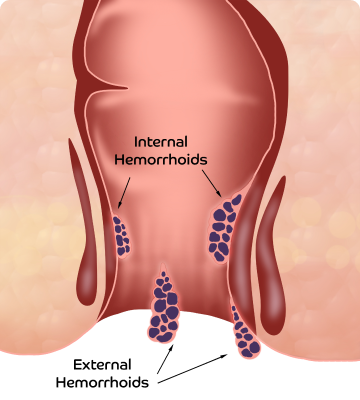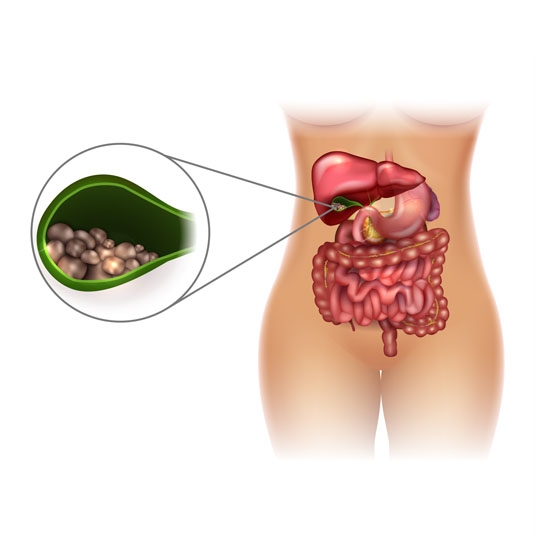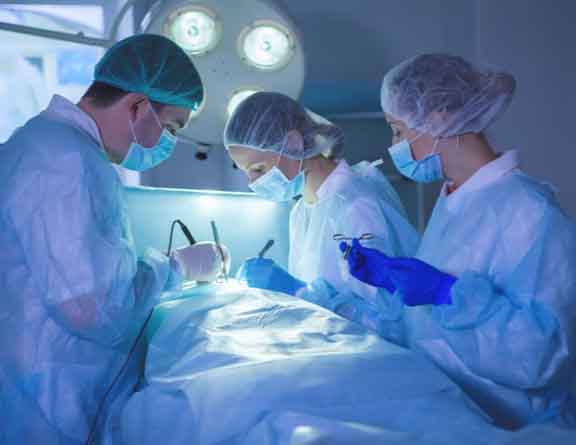Pristyn Care offers the most advanced Gallstones treatment in Ludhiana
We provide advanced effective gallstone treatment through laparoscopy. The minimally invasive nature of the laparoscopic procedure makes it highly effective and completely safe. At Pristyn Care treatment centres, the surgeons use state of the art USFDA approved equipment and we ensure you a seamless and comfortable medical experience.
The benefits of choosing a laparoscopic technique for gallstone removal surgery are:
Smaller incisions in comparison to the open surgery
- The faster rate of recovery than conventional techniques
- Only minimal scarring and discomforts
- No major bleeding during or after the procedure
- Discharge within 24 hours
- Nil chances of recurrence of gallstones
Highly Experienced Gallstone Surgeons in Ludhiana At Your Service
Pristyn Care houses some of the best gallstone surgeons in Ludhiana. The surgeons at Pristyn Care treatment centres hold years of experience and have treated even the severest cases of gallstones through modern laparoscopic surgery. If you have any doubts about the procedure, you can discuss these in detail with our specialists prior to undergoing the surgery and they will be happy to assist you.
You can book your appointment with our expert surgeon in any of the following ways:
- Give us a call on the number mentioned and speak directly to one of our medical coordinators who will book the appointment slot according to your convenience.
- Fill in the patient details in the Appointment form appearing on the right side.
- Click on the ‘Book Appointment’ icon and submit the details of the patient. One of our medical coordinators will get back to you in a short while.
Why Choose Laparoscopic Gallstones Surgery from Pristyn Care?
Pristyn Care is a patient-centric healthcare provider that works with the motive of ensuring a safe, effective and reliable treatment for all patients.
At Pristyn Care, you can avail the following benefits that you may not find elsewhere:
- The patient can avail discounted rates of diagnostics from our partner diagnostic labs.
- Free transportation facility to safely pick up and drop the patient on the day of the surgery.
- Insurance approval and other formalities are handled by our team members
- Complete assistance for hassle free admission at the hospital
- Detailed set of instructions for the patient for a fast and smooth recovery
- Free of cost follow-up offered to the patient within 7 days of the surgery
How do gallstones form?
A gallstone is a stone that forms inside the gallbladder due to precipitated bile components. The presence of gallstones is called cholelithiasis. The common reasons for gallbladder stone formation are:
- Bile containing too much cholesterol
- Bile containing excessive bilirubin
In all these cases, the excess cholesterol and bilirubin may start to crystallize and eventually turn into stones. Besides the above-mentioned reasons, there are two other factors that impact gallstone formation. The first one is the frequency and ability of the gallbladder contractions. If the contractions are incomplete and infrequent, the bladder won’t empty properly and cause the bile to become over concentrated. The second factor is the presence of proteins in the liver and bile that either promote or inhibit gallstone formation.
Initially, the size of these stones is equal to a grain of sand. However, it can grow quickly and become as large as a golf ball. Moreover, the gallbladder may contain one or multiple stones of smaller or equal size.
What are the different types of gallbladder stones?
Gallbladder stones are divided into three different types based on their composition. These types are explained below:
- Cholesterol Stones- It is the most common type of gallstone. Around 35% to 90% of stones present in gallstones are cholesterol stones. They can be light yellow, dark green, brown, or chalk white in color and have an oval shape. Usually, their size is between 2 to 3 cm long, but they can also grow larger if left untreated for a long time.
- Pigment Stones- This type of gallstone is composed primarily of bilirubin, which is an insoluble bilirubin pigment polymer, and calcium (calcium phosphate) salts present in the bile. Around 2% to 30% of stones present in the gallbladder are bilirubin or pigment stones. They are small and often dark in color.
- Mixed Stones- Also known as brown pigment stones, they are composed of 20-80% of cholesterol. The rest of the constituents can be calcium carbonate, palmitate phosphate, bilirubin, and other bile pigments, such as calcium bilirubinate, calcium palmitate, and calcium stearate. These types of stones usually form when the biliary tract gets infected.
All these three types of stones can be present in the gallbladder altogether or alone. But in each scenario, you will need proper treatment for them.
Why should gallbladder stones not be left untreated?
When left untreated, gallbladder stones can turn into a serious medical issue. If you don’t take a proactive approach for your health and consult a doctor to remove the stones, it can cause the following complications:
- Inflammation of the gallbladder(Cholecystitis)- When the stone gets stuck in the bladder, it will cause inflammation, severe pain, and fever.
- Blockage of the common bile duct- When the stones enter the bile duct and get stuck there, it causes infection in the bile duct, jaundice, and severe pain as well.
- Blockage in the pancreatic duct- Pancreas is connected to the bile duct directly. Hence, there is a high possibility that the stones can travel to the pancreatic duct as well. If this happens, it will cause inflammation in the pancreas (also known as pancreatitis). Due to the inflammation, you will experience intense and constant pain in the abdomen and may need immediate hospitalization.
- Gallbladder cancer- Frequent occurrences of gallstones can increase the risk of gallbladder cancer as well. Though it is rare, it is better that you seek proper treatment to reduce the chances of gallbladder cancer.
Ignoring gallbladder stones is not advisable under any circumstances. You should consult a doctor and discuss what you can do to get rid of the stones permanently.
Prevention of Gallbladder Stones
It is mostly our lifestyle that increases the risk of gallbladder stone formation. Therefore, you can prevent gallstones by making the following changes in your daily life:
- Do not skip meals- Try your best to stick with the usual meal times each day. Skipping meals can cause excess bile secretion and deposition.
- Lose weight slowly- Being overweight is a risk factor for gallstone development. So, if you are trying to lose weight, take things slow. Don’t push your body to its limits in order to lose weight as rapid weight loss can cause the liver to secrete extra cholesterol, which can further increase the risk of gallstones.
- Eat high-fiber foods- Foods that are rich in fiber ensure that the levels of bad cholesterol in the body are minimal. Furthermore, fiber keeps the digestive system moving and helps to flush out the bile from the body. Therefore, it is crucial that you add more fiber to your diet.
- Exercise regularly- It doesn’t necessarily mean that you have to do an extensive workout, being physically active is enough. The less you move, the slower the digestion process will be. As a result, the bile won’t flush out correctly. Invest some time in exercising and leave the sedentary lifestyle behind.
- Take prescribed medications- People who are at high risk of developing gallstones due to heredity or other factors can take medicines to lower the risk of gallstone formation.
You can talk to a gallstone specialist to find out what else you can do to prevent gallstones.
Dietary Changes for Gallstones
The food items that you eat on a regular basis have a significant impact on the body. If you eat a healthy and balanced diet and combine it with physical activities, it can lower the risk of gallstone development to almost negligible.
According to experts, the ideal diet for gallstones consists of:
- Fiber-rich foods like fresh fruits and vegetables.
- Whole grains, including brown rice, oats, whole wheat bread, etc.
- Fewer refined carbohydrates and less sugar.
- Healthy fats, such as fish oil and olive oil that helps to contract the gallbladder.
Along with knowing what foods to eat, you should also keep your cravings in check and avoid unhealthy fats, such as desserts and fried foods. Talk to your healthcare provider and ask them to make changes in your diet that will help you avoid gallstones and other health problems as well.






Pristyncare%20Clinic.webp)
Pristyncare%20Clinic.webp)
Pristyncare%20Clinic.webp)



.svg)









